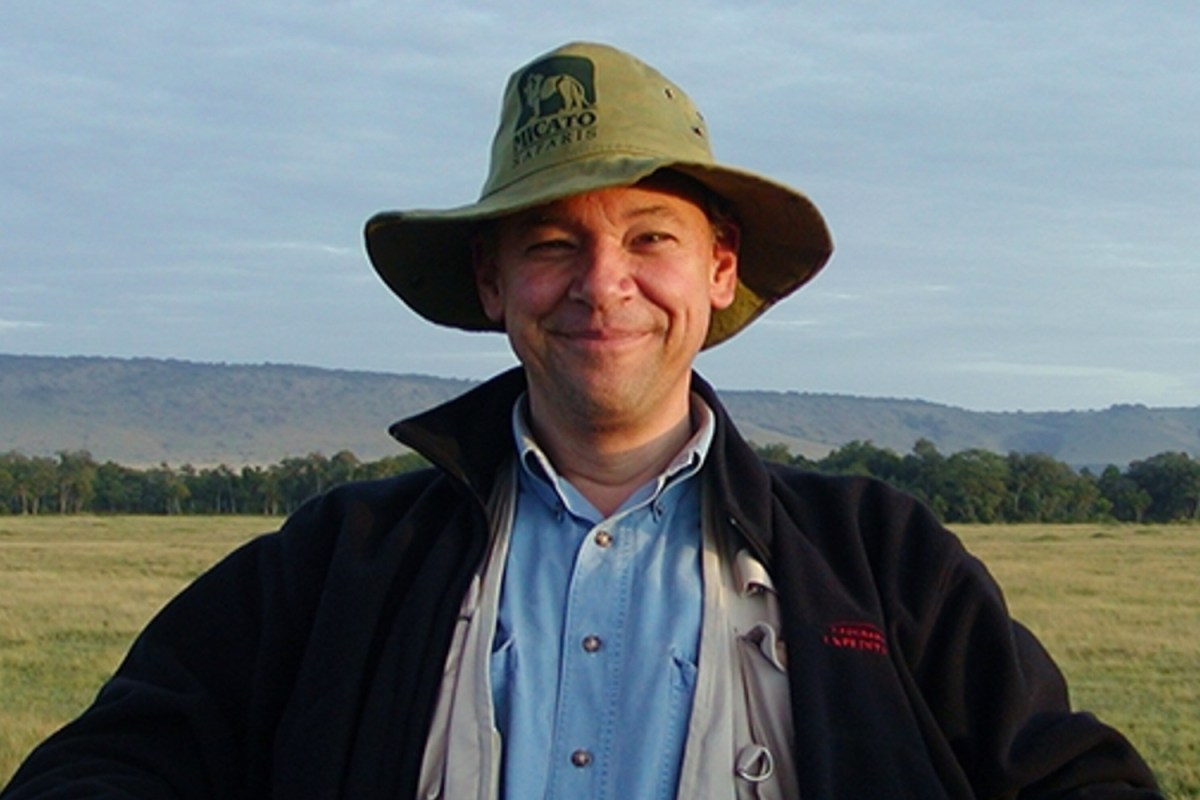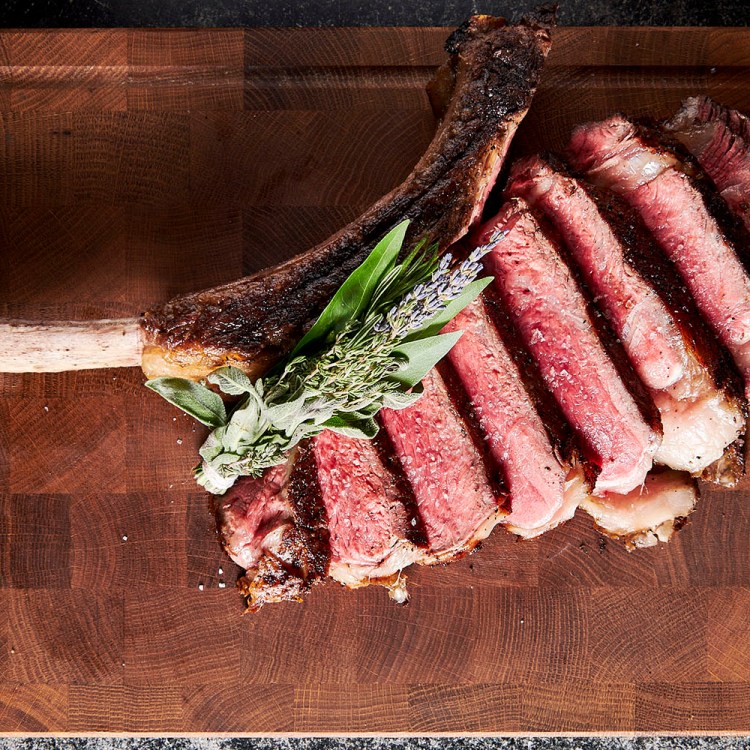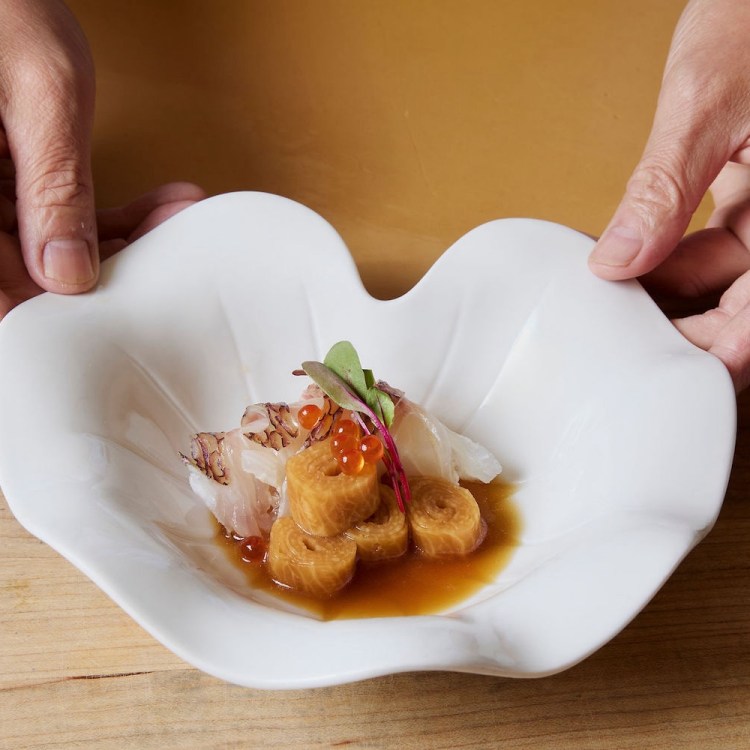Many of the world’s best travel writers, editors, publishers and photographers landed in Corte Madera this week, for Don George’s annual Book Passage Travel Writers and Photographers Conference. The event was launched “on a whim” back in 1992: Book Passage owner Elaine Petrocelli called and said they should start a multi-day conference for travel writers at the bookstore, George said yes and invited journalist and travel writer Jan Morris (“one of the greatest human beings of all time”) to be their guest of honor.
Now in its 30th year and still held at the beloved Bay Area bookstore, mornings are devoted to workshops, with panels in the afternoon that cover everything from social media to finding your story in the field. Basically, everything you need to know to be a travel writer or photographer.
“I’m proud the conference is still going and has evolved into what it is today — it’s one of the highlights of my year,” says George, who lives just over the Bay in the tiny town of Piedmont. During the conference, he also answers questions on how to get started, what makes a great travel story, and working with editors and travel industry professionals.
Travel writing was once a very different world, with hopeful queries to magazine editors typed up and sent by mail. George’s breakthrough, an essay about climbing Mount Kilimanjaro, landed a plum spot in the pages of Mademoiselle magazine thanks to one such missive. It kick-started a career that has spanned four decades, including travel editor roles at the San Francisco Chronicle, Salon and Lonely Planet. He’s also penned several books, including Lonely Planet’s best-selling Guide to Travel Writing, and received countless writing accolades, including the Society of American Travel Writers’ Lowell Thomas Travel Journalist of the Year Award.
“I feel incredibly blessed as it was such a crazy combination of serendipity that started my career,” George says. “I loved writing poetry in high school and went to Princeton, where I majored in English literature and minored in creative writing. After graduating, I went to Europe for a year and interned in Paris. It’s where I fell in love with the world and realized the classroom I wanted to be in wasn’t an ivy-covered one as a tweedy professor of English.”
Still an editor-at-large for National Geographic Travel and currently working on a second anthology of his best travel articles, a follow-up to The Way of Wanderlust: The Best Travel Writing of Don George, here, “the don of travel writing” shares a few industry how-tos and insights.
What does your pre-conference, all-day-in-the-field class look like?
“We meet at Book Passage and take a ferry to San Francisco, where I talk about some of the tips and secrets I’ve learned through the years, and how to make writing better as a writer and editor. As we walk from the Ferry Building to the North Beach neighborhood, I set an assignment for the writers to look for a story about the city and for clues that reveal the story’s essence. They’re detectives, but what mystery are they trying to solve? Another assignment I set after lunch is for them to situate themselves somewhere and write a description using all their senses. People are very good at writing about what they’re seeing, but they’re not usually so good at writing about what they’re smelling, hearing, tasting or touching. We tend to forget about all those other senses, so the idea is to get people to pay attention and honor those as well.”
Biggest takeaways that you learned early on in your career?
“Don’t compromise: Pursue your dream. Find a way to make that dream come true. Make your own luck. Don’t be afraid to say yes.”
Common mistakes writers make, and how can they be successful at landing assignments?
“Not studying the publication they want to write for closely enough and confusing a destination with a story. If they write a query to me saying, ‘I’m going to Italy. Would you like a story?’ My reply will be, ‘Italy isn’t a story. What about Italy do you want to write about?’ When I teach workshops, I present my point of view as an editor and what I’m looking for in a story. Writers frequently don’t understand the point of their stories. It’s often ‘this is what I did’ or ‘this is what happened to me.’ I try to get them to think about what they want the reader to take away from it.”
How do you shape a story for maximum effect?
“Good writing should make the reader’s journey run smoothly and not allow them to get lost along the way. Get the verbs right. Get rid of the adjectives. If you have a noun that will do the work of an adjective, get rid of the adjectives, and make every word count.”
What is the future of beautifully written travel prose in the video-dominant social media world?
“Travel publishing has evolved so incredibly it’s been like watching an earthquake with the landscape totally rearranged afterward. When I started, there were about 15 publications in the U.S. you could write for, and you either got published in them or you didn’t, and that was how your career advanced. Now, it’s exploded into this exciting but overwhelming field where everybody can be their own publisher. One thing to remember is the principle of doing justice and honoring your subject and yourself as a creator. Honoring your audience, and doing the best job you can, whatever medium you choose. Make sure you’re conveying the right message as effectively and evocatively as possible, whether with a two-minute video or a 2,500-word story.”
Can you summarize what it’s like being a travel writer in ten words?
1. “Explore the world wholeheartedly/mindedly; share what you learned and loved.”
2. “Blessed life studying/sharing in the classroom of the world.”
Is it still possible to make a living as a travel writer today?
“It has always been difficult to make a living as a travel writer, and it remains so today. The best way is to expand your professional portfolio geographically and stylistically (words, photos, video storytelling) and cultivate personal relationships with editors and producers by attending workshops and conferences.”
How do you feel the pandemic impacted travel writing and travel?
“It crushed people’s travel dreams. For two years, we were all just sitting rather than wandering around the world. Travel agents, hotels and tour companies got hit hard. Financially it’s still something people are trying to recover from. But I think the positive was we came to appreciate the value of travel and travel in our lives. We appreciate the fragility and interdependence of the planet in a whole new way. Our role as stewards and what we need to do to preserve and conserve all these incredibly wonderful things we took for granted before.”
What can you share about your writers workshops in Paris next summer?
“Another positive aspect of the pandemic was it taught us if we had a dream to go for it. I’ve always wanted to hold a writing workshop in Paris and declared I would have one there this summer. I just did it, and it was wonderful, so I’m holding two there next July. I’ve taken a big apartment on Île Saint-Louis, one of my favorite places. The workshops will run from the apartment, but we’ll wander around the city and do different writing exercises. The idea is for each person to find their passion point in Paris, something that really speaks to them, which they’ll write an essay about called ‘My Personal Paris.’”
Your takeaway to budding travel writers?
“Become the editor of the publication you want to write for. Understand how they choose the stories they publish. Every editor has a picture puzzle of stories in their mind; understand where your story fits in that puzzle.”
Don George’s writers workshops in Paris run from July 6 to 11 and July 16 to 21, 2023, with group sizes limited to nine writers per workshop. www.don-george.com.
This article was featured in the InsideHook SF newsletter. Sign up now for more from the Bay Area.
























